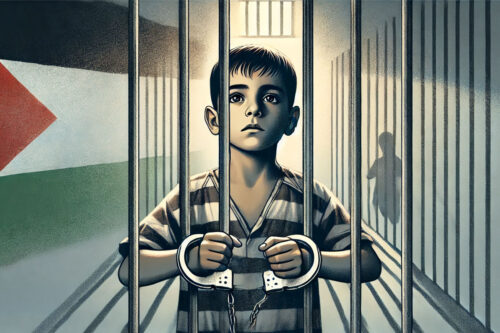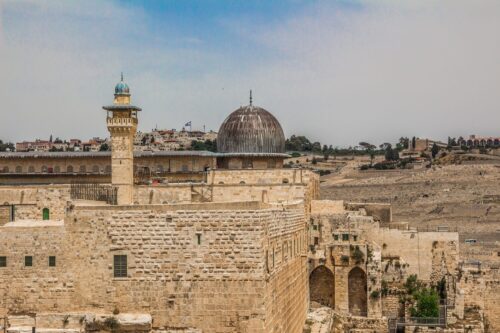Green Resistance
The West Bank has long been a source of bountiful produce; the fertile soils and mild climate are ideal for cultivating a wide range of crops. However, restrictive measures imposed by occupation forces have put a strain on the ability of farmers to ply their trade. As part of our Qurbani 2016 campaign, Interpal is showcasing unique projects aimed at tackling chronic ecological and agricultural problems in order to find more sustainable solutions to overcome the obstacles of occupation.
Since the occupation first began, Palestinian produce has reduced in quality, strangling farmer’s chances of profiting from their exports. Waiting for long periods at check points means that delivery is delayed and freshly-picked crops deteriorate rapidly in the hot sun, causing local Palestinians to have to resort to buying Israeli imports, which are free from such restrictions, rather than buying their own produce. In addition to tight border controls which have restricted the supply chain, chances for Palestinian businesses to prosper have been ruined by these prohibitions.
These issues have forced businesses and environmental agencies to work even harder to find sustainable solutions. For example, in Bet Qad, just outside Jenin, a food revolution is on the rise. The Ma’an Development Agency is transforming attitudes to what and how people eat through growing kale – widely heralded around the world as a ‘superfood’ due to its health benefits. The ‘Kale Project’ has focused on encouraging farmers to grow and sell kale locally, as it is cheap to cultivate and high in nutritional value.
The Kale Project could potentially boost the local economy as well as meet the dietary needs of Palestinians during times of blockade and war. The only challenge that farmers now face is introducing kale to local residents, who have never heard of it up until now.
Further to the South, Bustan Quraaqa, a permaculture farm based outside Bethlehem, has also been pivotal in running projects which manage chronic water shortages and contamination problems. Palestinians have already been denied access to the Jordan River, and only have access to 20% to the main supply of water in the region through the unreliable aquifier at the foot of the mountains. Bustan Quraaqa, (translation: ‘The Tortoise Garden’), offer solutions to the water shortage and contamination problems through the use of aquaponics. The technique utilises fish to supply nutrients to water borne plants, which in turn purify the water. In this way, water can be recycled and cultivated in any setting without the need for expensive technology.
Bustan Quraaqa have also introduced composting in order to maximise farming potential and help fertilise local crops. A ‘Zero Waste’ policy is also being tested, in order to reduce the amount of waste accumulated in residential areas. The recycling motto at the Tortoise Garden is: ‘whatever comes in, does not go out’.
As part of this year’s Qurbani campaign, Interpal is focusing on stories about people, food and farming. Farming communities are central to our ability to celebrate Eid Day with fresh meat and plentiful food. Keep an eye out for our stories of sustainability and please donate to our Qurbani appeal to bring fresh food to needy families on Eid Day.
#PalestineFacts
Calculate your Zakat
Confused about how to calculate your Zakat? Try our simple-to-use calculator

![A Shadow R1 spy aircraft operated by the UK's Royal Air Force, accused of supporting the genocide in Gaza [Jerry Gunner / Wikimedia]](http://www.interpal.org/wp-content/uploads/2025/04/1768px-Shadow_R1_5AC_Sqdn_RAF_Waddington_this_morning-e1745166357309-500x333.jpg)

![Fighters from Israel's pre-state militia occupying the village of Deir Yassin, April 1948 [IDF archive / Wikimedia]](http://www.interpal.org/wp-content/uploads/2025/04/Jewish_militias_in_the_village_of_Deir_Yassin_April_1948_cropped_and_edited-e1745166391491-500x333.jpg)

